featured insight
featured insight
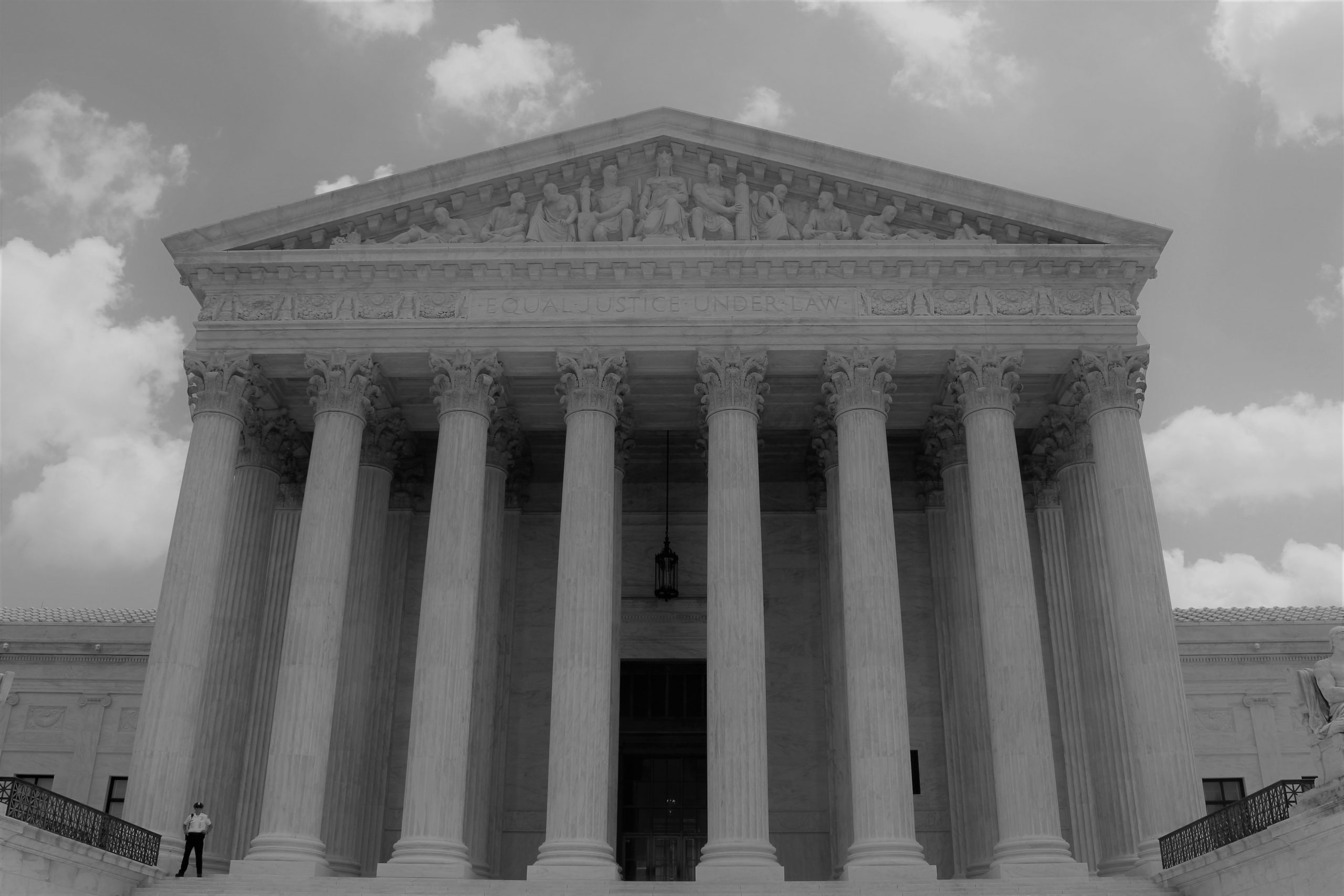
Voters and The Supreme Court
New research from Meeting Street Insights shows that the Supreme Court is one of many important election issues for voters.
With the passing of Justice Ruth Bader Ginsburg, the Supreme Court has taken on new importance in the discourse around the Presidential and Senate elections. Meeting Street Insights launched a national survey to learn more about how important voters say the Supreme Court is to their choices in November.
The Supreme Court is One of Many Issues That Voters Say are Extremely Important to Them
42% of voters indicate that the Supreme Court is extremely important to how they plan to vote in November. However, that ranks behind the COVID-19 outbreak (60%), jobs and the economy (55%), health care (53%), violence and riots in our cities (46%), and crime and safety (43%) as issues that are extremely important. Taxes (39%), schools (37%), race relations (36%), immigration (36%), and police violence (35%) are also extremely important to many voters.
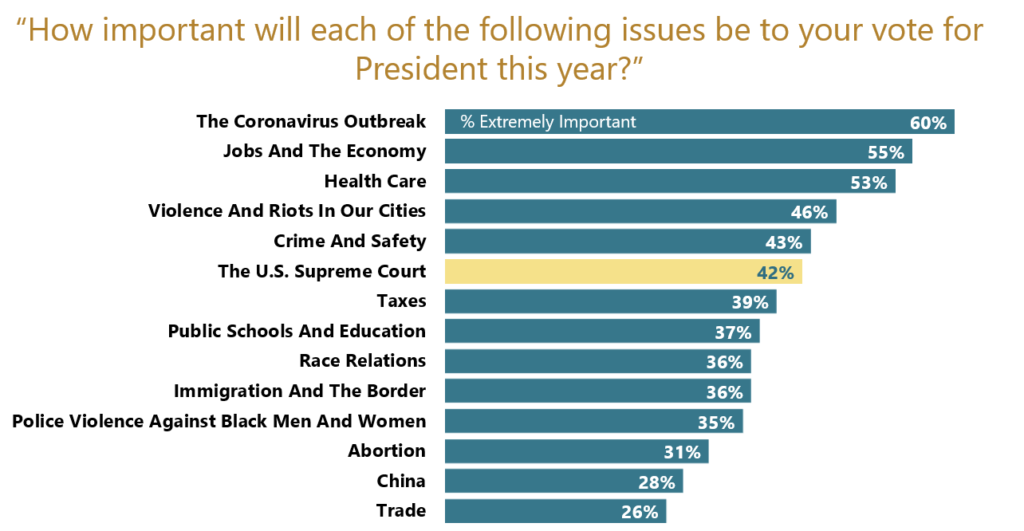
Most Voters Indicate the U.S. Supreme Court is Very Important to their Choice for President
Still, the Supreme Court is among the top issues on voters’ minds. When asked how important the U.S. Supreme Court is to their vote for President this year, 70% of voters say “extremely important” or “very important.” Another 20% of voters say it is “moderately important.” Only 7% of voters say it is “not that important” or “not at all important.”
Liberal Democrats (55%) and Base Democrats (53%) are slightly more likely to consider the Supreme Court “extremely important” to their Presidential vote than Conservative Republicans (51%) or Base Republicans (51%).
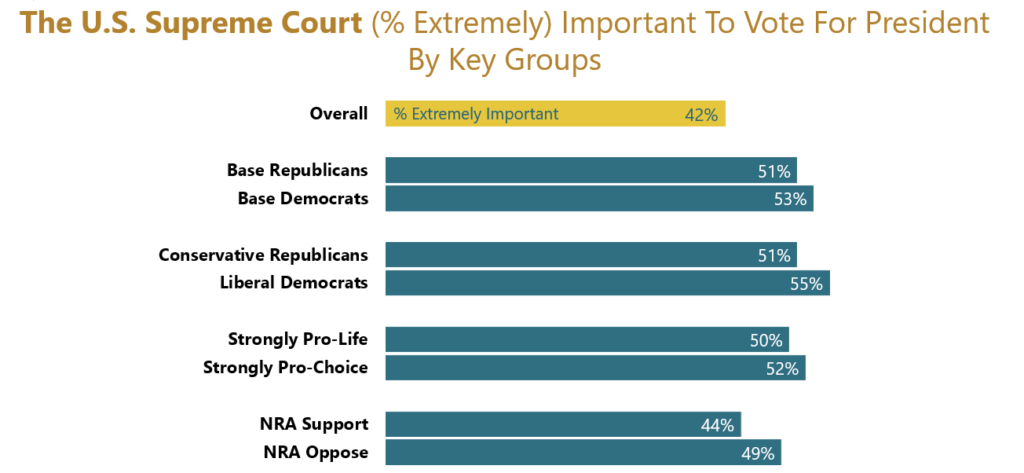
Undecided voters are significantly less likely than Trump or Biden voters to tell us that the Supreme Court is “extremely important” to who they choose to vote for in the Presidential election (22%).

The Supreme Court Is Also Important to Voters’ Choices in Their U.S. Senate Race
We asked voters in states with a Senate race on the ballot how important the U.S. Supreme Court is to them in deciding how to vote for the U.S. Senate on a scale of 1 to 10 (with 1 being “not at all important” and 10 being “extremely important”). More than a third of voters indicate the Supreme Court is extremely important to their Senate vote, including 36% of people voting for the Republican candidate in their state’s Senate race and 41% of people voting for the Democrat.
Undecided Senate voters, on the other hand, were the least likely group to indicate that the Supreme Court is extremely important to their choice (5%).
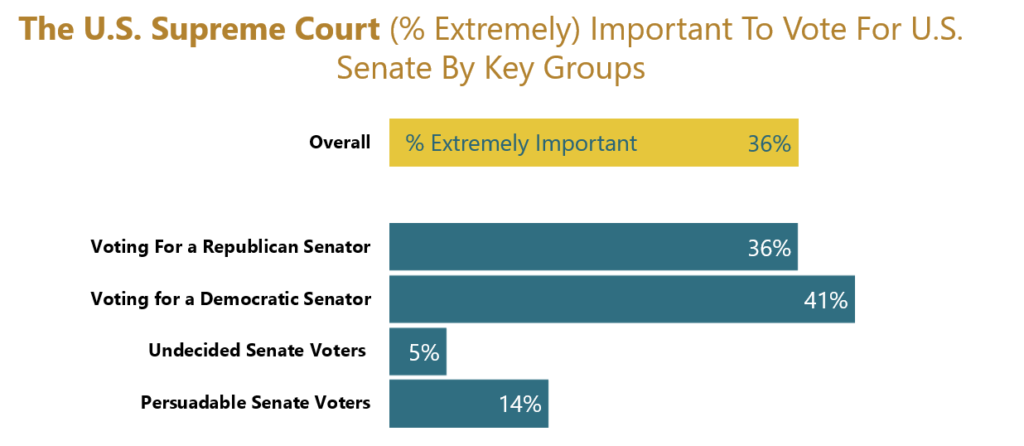
A Plurality of Voters Say the Supreme Court Tilts More to the Right and a Conservative Point of View
When asked about the ideological leanings of the Supreme Court, 41% of voters say that the Supreme Court tilts more to the right and a conservative point of view. Democrats are most likely to say that the Supreme Court leans to the right (49%). Pluralities of Independents (30%) and Republicans (38%) agree.
About 1 in 4 voters indicate that the Court is pretty evenly balanced (26%). Independents (29%) and Republicans (30%) are more likely than Democrats (21%) to say the Court is evenly balanced.
Only 16% of voters believe the Supreme Court has a left-leaning point of view.
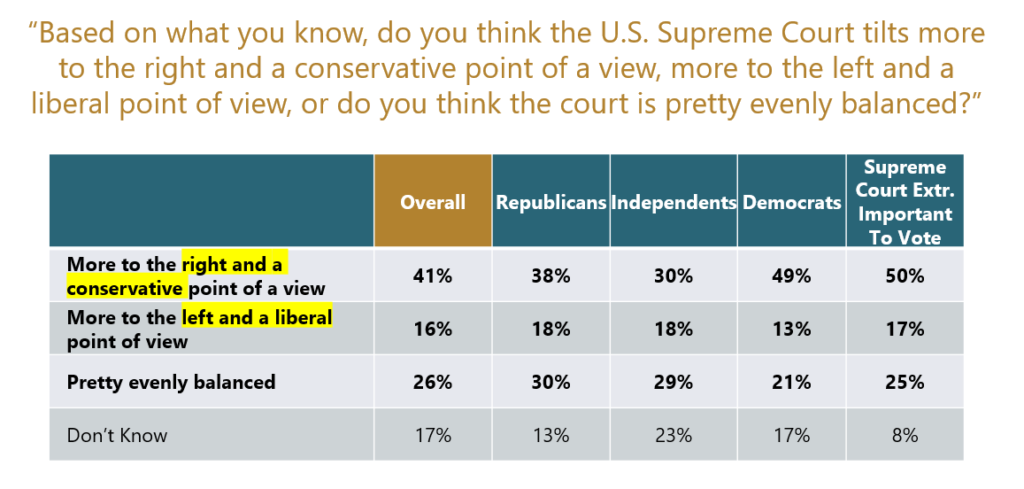
It’s possible that Republicans are slightly less concerned with the Supreme Court because they already feel that the Court is in line with their views. Democrats could be more concerned because they want to bring the Court more in line with their views (or they don’t want the Court to move even further to the right).
Although the Supreme Court has taken on increased significance in election discussions, the data shows that it should be considered one of several key issues for voters. And while many consider the Supreme Court to be a winning issue for Republican turnout and enthusiasm, this year it appears that Democrats and other left-leaning voter groups tend to be a few points more concerned than their right-leaning counterparts.
Meeting Street Insights conducted an online national survey of registered voters (N=800). The study was conducted September 21–24, 2020.
What do you need to know? We can help. Get in touch or subscribe to our newsletter.

